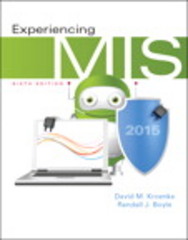Question
Assignment Task: Students are required to analyze a provided scenario involving a decision-making dilemma faced by a local municipality official. They should apply each of
Assignment Task: Students are required to analyze a provided scenario involving a decision-making dilemma faced by a local municipality official. They should apply each of the three management ethics models (moral, amoral, and immoral) to assess the ethical implications of various courses of action. Students will then recommend the most ethically appropriate approach based on their analysis.
Scenario: You are a local municipality official responsible for allocating funds for community development projects. Your municipality has limited resources, and you are under pressure to prioritize projects that will generate economic growth and increase tax revenue. However, there are competing demands from residents for projects that address social welfare issues, such as affordable housing and public healthcare facilities.
Assignment Requirements:
- Apply the moral model of management ethics to analyze the ethical implications of prioritizing economic growth projects over social welfare initiatives. Consider ethical principles such as justice, fairness, and the common good.
- Apply the amoral model of management ethics to evaluate the decision-making process without considering ethical concerns. Assess the focus on achieving economic objectives and maximizing tax revenue regardless of social welfare considerations.
- Apply the immoral model of management ethics to assess the potential consequences of neglecting social welfare needs for the sake of economic growth. Consider the disregard for ethical principles and the negative impact on vulnerable populations.
- Recommend the most ethically appropriate approach based on the analysis of each model, providing justification for your recommendation.
Rubric:
| Criteria | Excellent (10) | Good (8) | Fair (6) | Needs Improvement (4) | Poor (2) |
| Moral Model Analysis | Provides a comprehensive analysis of the ethical implications of prioritizing economic growth projects over social welfare initiatives from a moral perspective, considering relevant ethical principles and values. | Provides a thorough analysis of the ethical implications from a moral perspective but may lack depth in considering all relevant factors or principles. | Provides a basic analysis of the ethical implications from a moral perspective but may overlook some important ethical principles or values. | Provides a limited analysis of the ethical implications from a moral perspective, focusing primarily on one aspect or value. | Provides no analysis of the ethical implications from a moral perspective. |
| Amoral Model Analysis | Provides a comprehensive analysis of the decision-making process from an amoral perspective, considering the focus on achieving economic objectives and maximizing tax revenue without considering ethical concerns. | Provides a thorough analysis of the decision-making process from an amoral perspective but may lack depth in evaluating its implications or consequences. | Provides a basic analysis of the decision-making process from an amoral perspective but may not fully consider its implications for stakeholders or society. | Provides a limited analysis of the decision-making process from an amoral perspective, focusing primarily on one aspect or consequence. | Provides no analysis of the decision-making process from an amoral perspective. |
| Immoral Model Analysis | Provides a comprehensive analysis of the potential consequences of neglecting social welfare needs for the sake of economic growth from an immoral perspective, considering the disregard for ethical principles and the negative impact on vulnerable populations. | Provides a thorough analysis of the potential consequences from an immoral perspective but may lack depth in evaluating their significance or implications. | Provides a basic analysis of the potential consequences from an immoral perspective but may not fully consider their impact on stakeholders or society. | Provides a limited analysis of the potential consequences from an immoral perspective, focusing primarily on one aspect or stakeholder group. | Provides no analysis of the potential consequences from an immoral perspective. |
| Recommendation | Recommends the most ethically appropriate approach based on the analysis of each model, providing clear justification and reasoning for the recommendation. | Recommends an ethically appropriate approach based on the analysis of each model, but may lack coherence or depth in the reasoning provided. | Recommends an approach based on the analysis of each model, but the recommendation may not be well-supported by justification or reasoning. | Recommends an approach based on the analysis of each model, but the recommendation is not ethically appropriate or lacks reasoning. | Fails to recommend an ethically appropriate approach based on the analysis of each model. |
| Criteria | Excellent (10) | Good (8) | Fair (6) | Needs Improvement (4) | Poor (2) |
Total: 50
Step by Step Solution
There are 3 Steps involved in it
Step: 1

Get Instant Access to Expert-Tailored Solutions
See step-by-step solutions with expert insights and AI powered tools for academic success
Step: 2

Step: 3

Ace Your Homework with AI
Get the answers you need in no time with our AI-driven, step-by-step assistance
Get Started


